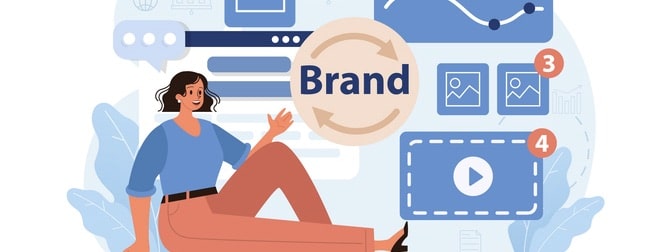Newly released research from local businesses service provider Scorpion explores the traditional and digital media channels consumers prefer when researching and purchasing new products or services, as well as their data privacy/online personalization preferences.
Key findings include:
Most people want web personalization
Seventy-one percent of respondents indicated they like having their website browsing experience personalized. In fact, only 9 percent of Gen Z said they would not want a personalized web browsing experience while 19 percent of Millennials and 28 percent of Gen X said no. A whopping 46 percent of Baby Boomers said no to a personalized web browsing experience, meaning they were 5x more likely than Gen Z to not want personalized ads, often tied to data privacy concerns.
However, many are not satisfied with that web personalization
In fact, 72 percent of respondents indicated dissatisfaction with the digital ads they receive. A quarter of the survey respondents indicated that personalized web ads were usually not relevant to them; 22 percent said the ads ‘seem to know too much’ about them; and 22 percent indicated ads reached them after they had already made their purchases.
Neighborhood apps are a hit with Gen Z and Millennials
Gen Z and Millennials were nearly 2x as likely as Baby Boomers (29 percent vs 16 percent) to use neighborhood apps and pages (e.g., NextDoor and Facebook Groups) for learning about new products and services.
Smart devices unlock next phase of shopping
Older Millennials and younger members of Gen X lead the way in smart device shopping at 56 percent, followed by Gen Z at 46 percent and younger Millennials at 44 percent. Despite traditionally lagging behind in technology adoption, a surprising 33 percent of Baby Boomers use smart devices for shopping.
YouTube is the great unifier
The most helpful social network turned out to be YouTube, with 17 percent of respondents giving it the top spot, though Gen Z and Millennials were nearly 3x as likely as Baby Boomers (22 percent vs 8 percent) to say YouTube was the most helpful.
“The future of digital marketing is centered around personalization, as businesses of all sizes now have access to technology that can provide a 1:1 experience for their customers,” said Joe Martin, VP of marketing at Scorpion, in a news release. “It’s essential that small businesses understand their customers so they can produce tailor-made marketing that results in each customer truly understanding the value of the goods or services delivered. When this occurs, customer satisfaction peaks, and that in turn results in customer retention, and even additional customers via ‘word of mouth’.”
Where consumers go for new products & services info
When it comes to learning about new products and services, younger and older generations share some similarities, but also have distinct preferences when it comes to certain channels.
- Across all age groups, 53 percent of respondents said online and email ads were where they learned about new products and services while 43 percent said websites were where they turned. These were the only two channels where variance among the generational groups was relatively small.
- Gen Z (18-24) and younger Millennials (25-34) are 4.5x and 4X more likely than Baby Boomers to turn to influencers when learning about new products and services, with 43 percent of Gen Z and 35 percent of younger Millennials saying they were influenced by influencers compared to 9 percent of Baby Boomers.
- The rising prevalence of messaging platforms like Discord and Reddit with younger generations was apparent as Gen Z was 4.5x and Millennials + Gen X 5x as likely as Baby Boomers to use them for new product and service discovery. Only 3 percent of Baby Boomers turned to messaging platforms while Gen Z clocked in at 14 percent and Millennials + Gen X 16 percent.
- The tables were flipped when it came to direct mail, flyers, and print ads. This more traditional channel resonated with Baby Boomers much more than younger generations, with Baby Boomers (38 percent) 3.5x more likely to turn to print than Gen Z (10 percent) and younger Millennials (11 percent).
Importance of online reviews perceived differently according to age/generation
With regards to online reviews, younger generations tend to place more emphasis on star ratings while older generations are more willing to let companies slide if they have poorer reviews.
- 23 percent of Gen Z and 20 percent of Millennials said they would never consider a company that had less than five-stars on review sites. This is in contrast to Baby Boomers, of whom only 7 percent said as such.
- On the other side of the coin, 16 percent of Baby Boomers said they would not exclude a company based on their star ratings. This is 4x more likely than Gen Z (4 percent).
Download the full report here.
The survey was conducted with Qualtrics in Q2 of 2022, and had a sample size of more than 1,000 U.S. consumers.













